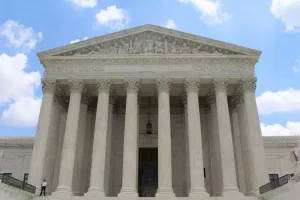
- Originally Published on April 16, 2025
Best Defamation of Character Lawyers in Ohio
If you are located in Ohio and the target of defamation, you are probably feeling a lot of things – like anger, frustration, and possibly even confusion. Defamation of character lawyers in Ohio know all too well the emotional toll that lies, fake reviews, and other defamatory content can have on an individual or business.
In addition to the frustration that accompanies defamation, it can be overwhelming to find a lawyer to advise you of your legal options. We have taken the time to compile a list of the top defamation lawyers in Ohio for you – so you can focus on getting the legal help you need.
Five of the top defamation lawyers and law firms in Ohio include:
- Aaron Minc and Minc Law;
- The Chandra Law Firm;
- Melissa D. Bertke of Baker Hostetler;
- Thomas G. Haren of Frantz Ward;
- John C. Grenier of Graydon Law.
At Minc Law, it is our mission to provide transparent and trustworthy services. While we can help most victims of defamation, we understand that we are not always a perfect match for everyone. Even if we are not the right fit, we want you to find appropriate help for your defamation issue. That is why we have researched other defamation lawyers in Ohio that may be able to help you even if we cannot.
In this article, we will look at Ohio defamation laws, Ohio defamation of character attorneys, and how to find an experienced internet defamation lawyer in Ohio. We will also explain how to find reviews for Ohio law firms and how to file a lawsuit for defamation of character.
Top Ohio Defamation Lawyers & Law Firms Who Can Help With Your Defamation of Character Lawsuit
#1. Aaron Minc and Minc Law |
|
#2. The Chandra Law Firm LLC |
|
#3. Melissa D. Bertke (BakerHostetler) |
|
#4. Thomas G. Haren (Frantz Ward) |
|
#5. John C. Grenier (Graydon) |
|
Ohio Laws Governing Defamation of Character
We are defamation lawyers based in Ohio. Even though experienced defamation lawyers can help people in virtually any state, it is useful for us to look at Ohio laws, specifically.
Defamation of character, also commonly referred to as ‘defamation’, is a comprehensive legal term of art for publishing lies that hurt another person’s reputation. In layman’s terms, defamation is a false statement made to a third party that causes damages to another person or their reputation.
There are two categories of defamatory statements:
- Libel – a false written statement to a third party that causes damage to the subject of the statement.
- Slander – a false statement that was spoken or orally communicated to a third party that causes damage to the subject of the statement.
Under Ohio defamation law, defamation is known as defamation of character and is defined as a “false statement that causes injury to a person’s reputation, exposes him to public hatred, contempt, ridicule, shame, or disgrace or affects him adversely in his trade or business.”
There are five elements of defamation that you need to prove to win a defamation lawsuit. Ohio requires that you prove:
- That a false statement was made;
- About the plaintiff;
- To a third party, without legal privilege;
- With at least negligence on the part of the Defendant (meaning they were careless and did not take reasonable steps to ensure what they were saying was true);
- That was either: defamatory per se (libel per se or slander per se) or caused special harm to the plaintiff.
As with other jurisdictions, there is a statute of limitation for defamation claims in Ohio. Plaintiffs are required to bring an action for libel or slander “within one year after the cause of action accrued.” In general, the statute of limitations begins when a person first makes the defamatory statement.
If, for example, a former employee publishes a defamatory statement about your business on February 17, 2021, you will need to file a defamation lawsuit before February 17, 2022, to comply with Ohio’s statute of limitations.
How Do You Sue for Defamation of Character in Ohio & Win?
In Ohio, individuals, businesses, and groups who have had their reputations damaged from a harmful or false statement can file a civil action for defamation.
To sue for defamation of character in Ohio and win, we recommend taking the following steps when filing your defamation lawsuit:
- Step One: Assess whether you have a valid claim for libel or slander. Do you believe you could prove each of the five elements for defamation of character?
- Step Two: Consider what defenses you may face to your lawsuit and how you may be able to overcome them. Common defamation defenses include opinion, truth, privilege, statute of limitations, and consent.
- Step Three: Decide on the best court to file your lawsuit. You may have an option between jurisdictions if you and your defamer live in different states. There may be strategic reasons for choosing one jurisdiction over another, including more favorable defamation laws or longer statutes of limitation, among other things.
- Step Four: Draft your legal complaint. You will want to ensure your complaint is drafted to maximize your chances of winning. A solid defamation complaint should identify the parties and jurisdiction, describe the facts leading to the allegation, and your legal claims for relief. Finally, you will list the relief you are requesting (like defamation damages) or a request for a jury trial.
- Step Five: Comply with all pre-suit filing requirements, including notifying the defendant that a lawsuit will be filed unless they retract their defamatory statement.
- Step Six: Serve your lawsuit on the defendant after filing it. Service of process is a requirement in any type of lawsuit – it notifies the other party that a lawsuit has been filed against them and that they must respond to the allegations in the complaint.
Filing and litigating a defamation of character lawsuit can be a daunting task and should not be taken lightly. We suggest hiring an experienced defamation attorney to help you assess and file your case.
Can I Sue a Defendant Located Outside of Ohio?
Yes, you can sue a defendant located outside the state of Ohio. Generally speaking, you can file a lawsuit in the state where you live or where your business operates, as well as the state where the defendant lives.
In certain cases, you can even file a lawsuit in a jurisdiction where your customers live or where you have experienced losses or damages. For instance, if you live and operate a business in Ohio, but the majority of your customers are in Pennsylvania, and defamation causes you to lose many of your Pennsylvania customers – you could potentially file a defamation lawsuit in Pennsylvania.
Choosing where to file your defamation claim is a strategic matter that could increase (or hurt) your chances of winning your case.
What Are the Costs Involved When Suing For Defamation of Character?
Lawsuits are very expensive, especially compared to non-legal litigation alternatives. The cost of a defamation lawsuit varies depending on a variety of factors. Those factors include:
- Whether you are seeking monetary relief,
- If a defendant’s identity is known or unknown,
- Whether a court order to remove content is necessary,
- The amount of defamatory content online,
- Whether time is of the essence or not,
- Fees for local counsel,
- Whether the case is contested by the other side, and
- The type of attorney fee structure you agree to.
At Minc Law, the starting cost of a defamation lawsuit can be as low as $5,000–$8,500. But, on average, most total case costs fall between $14,000 and $16,000.
Contested cases can cost an average of $4,000–$6,000 per month, with total costs in the range of $30,000–$60,000 for a trial (if the case proceeds all the way to trial).
When it comes to suing for defamation, costs are a number one concern for our clients. While there is no one-size-fits-all answer for determining a defamation lawsuit’s total costs, there are several major factors that may impact the required budget to ligate for libel or slander.
Most attorneys will require a retainer fee up-front to initiate the lawsuit and cover future services. Retainers can range anywhere from a couple of thousands of dollars to $10,000–$20,000 depending on the circumstances surrounding your matter and where you are filing your case. At Minc Law, we typically require a $8,500 retainer for litigation matters.
If these numbers are giving you sticker shock, there are ways to finance your legal fees, such as obtaining a loan, using credit cards, crowdfunding, and loans from family and friends.
When to Seek Legal Help For a Defamation of Character Lawsuit
Defamation can occur in many forms. Some defamation examples include: lies shared in face-to-face conversations, on phone calls, through text messages, in books, on social media, podcasts, blogs, shaming websites, online review sites, cheater websites, and gossip forums.
Below, we elaborate on a few of these examples to better illustrate situations in which defamation occurs.
Example 1: Face to Face Defamation
You own a business and are conducting interviews for a new assistant. When you reach out to a candidate with a job offer, they reject your offer and explain that one of your current employees pulled them aside after the interview and told them how horrible you are as an employer.
It turns out, your disgruntled employee lied to several candidates you were interviewing – saying that you do not pay for overtime, sleep with employees, and verbally abuse workers. You may have a defamation of character claim.
Example 2: Social Media Defamation
You own a thriving dental practice. One day an employee tells you that you should check out the chatter on your office’s Facebook page. When you get online you see that a former patient has made a series of negative dental reviews on your office’s page stating that you overcharge your clients, perform unnecessary procedures, and do not properly clean your dental instruments.
You are familiar with the patient because you recently had to refer their account to a collection agency. Before now, you have never heard a complaint from them about any procedures you performed or any of your billing practices. You are not even sure where they got the idea that you do not clean your tools (because you always do).
Shortly after the comments appear on your Facebook page, other patients start canceling their appointments stating that they do not want to see a dentist with such a poor reputation. You likely have a defamation of character claim against the former patient who made the false comments.
What Should You Expect When Filing a Defamation Lawsuit in Ohio?
You may be surprised to hear this, but lawsuits do not exactly mirror what you see on popular legal TV dramas. Defamation lawsuits can be time-consuming, costly, and stressful. It helps to know what you are in for before you decide to move forward with a lawsuit.
Here are a few things you should expect when filing a defamation lawsuit:
- Be prepared to disclose everything with your attorney, even the embarrassing things.
- If you are trying to recover financial loss, you will need to share supporting financial documents to prove your losses;
- Litigation matters can move slow, do not expect a quick result. Patience is a necessary part of any lawsuit;
- You may be deposed during the course of discovery (other parties may be subpoenaed for depositions as well including your employer, doctors, friends, family, etc.);
- Be prepared for costs to (potentially) add up;
- Results are not guaranteed. An attorney cannot guarantee success in any lawsuit including defamation of character suits.
Where Can You Find Reviews of Ohio Law Firms?
Recent studies have shown that 90% of consumers read at least one online review before deciding to patronize a business. If you are wondering where you can read reviews of Ohio law firms, we have compiled a list of resources to help you find reviews and testimonials for Ohio attorneys and firms.
Here are some sites where you can find reviews of Ohio attorneys:
- Google Reviews
- Yelp
- Avvo
- Martindale-Hubbell
- Lawyers.com
- Better Business Bureau
- Nolo
- Ohio Supreme Court – call or view the attorney’s bar record online to see if they have ever been the subject of a disciplinary action
- Attorneys’ own website – check for testimonials from clients
Get Started With an Experienced Ohio Defamation Attorney Today
Our experienced online defamation attorneys are here to help, whether you are located in Ohio or on the other side of the globe. With more than 350 defamation cases under our belt, we know what it takes to win a defamation lawsuit.
We believe in empowering others with legal knowledge and transparency. That is why we provide a free Legal Resource Center and clearly outline what you can expect when working with us – from pricing to what you can expect during a consultation.
If you would like to schedule a free, no-obligation consultation with an intake specialist, you can reach out by calling us at (216) 373-7706, speaking with a Chat Representative, or filling out our contact form.
Get Your Free Case Review
Fill out the form below, and our team will review your information to discuss the best options for your situation.
This page has been peer-reviewed, fact-checked, and edited by qualified attorneys to ensure substantive accuracy and coverage.


